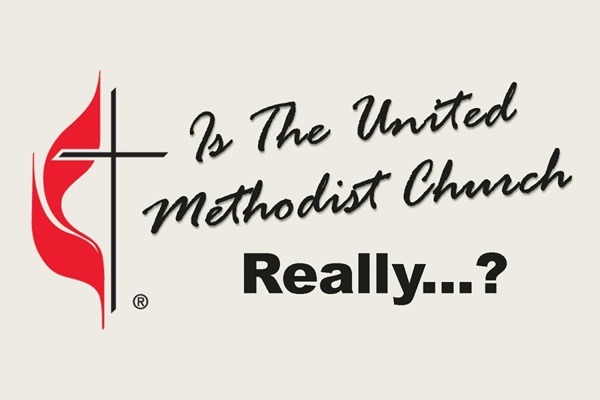At Ask The UMC, we continue to answer questions from congregations wondering about the future of The United Methodist Church, whether they should consider disaffiliating from it, and what happens if they do.
This is the ninth of a series of articles offering factual responses to questions we continue to receive at Ask The UMC. This article addresses questions about the future of Paragraph 2553, annual conferences where disaffiliation under Paragraph 2553 is not permitted or discontinued, and what happens to non-disaffiliating clergy when the church to which they are appointed disaffiliates. All of the articles in the series are available here.
We welcome your questions and invite you to contribute to future articles in this series by sharing what you are hearing about the process of disaffiliation or the future of The United Methodist Church. Write to [email protected].
Is The UMC really…?
30. Going to extend the life of Paragraph 2553 at the next General Conference?
There are two answers: Not as such, and we do not know.
First, not as such. Only General Conference can alter the Discipline. General Conference does not meet until 2024, at which point Paragraph 2553 will in effect not exist, since it set its provisions to expire Dec. 31, 2023. It is not possible to “extend” a paragraph that does not exist. Thus, if anything like Paragraph 2553 is to be approved at the General Conference, it would be new legislation, not an actual extension of then-current legislation.
Second, we do not know. To date, the General Conference has not received legislation that would have the effect of re-enacting Paragraph 2553 as it currently exists but with a different expiration date. It is possible the General Conference could receive such a proposal. It would also be possible for delegates to the General Conference to propose and adopt such itself. Whether either of those two things will happen remains to be seen.
31. Prohibiting congregations from disaffiliating under Paragraph 2553?
The United Methodist Church as a denomination has not done so.
In South Carolina, conference leadership — including their trustees — have concluded that no congregation qualifies for disaffiliation under the provisions of Paragraph 2553. That paragraph sets two possible qualifications to establish a right to request disaffiliation. The first is that the congregation disagrees with the changes made by the 2019 special called General Conference to legislation related to homosexual persons. However, congregations in South Carolina agree with those changes. The other qualification would be if, by action or inaction, the annual conference failed to implement those changes. The South Carolina conference has implemented them fully. Thus, no congregations in the South Carolina conference can qualify to disaffiliate under the terms of Paragraph 2553. As noted in Part 8 of this series (Question 29), the South Carolina conference has instead implemented an alternate set of policies for closure (they do not call this disaffiliation) grounded in a different paragraph.
In North Georgia, the degree of misinformation and defamatory statements used to inform votes for disaffiliation led the conference board of trustees to determine “it is no longer confident it could recommend in good faith disaffiliation agreements to the Annual Conference at this time.” Since recommendation for disaffiliation comes from the conference board of trustees to the annual conference, and since the annual conference must approve disaffiliations before they can take place, the effect of this determination by the conference board of trustees was to halt the process of disaffiliation under Paragraph 2553 in that conference.
However, a large group of North Georgia UMC congregations signed onto a lawsuit against the North Georgia Conference, filed in the Cobb County Superior Court, which ruled that the North Georgia Conference must permit these congregations to proceed through the process outlined in ¶2553. Thus, the North Georgia Conference has scheduled a special called session of the annual conference (November 18, 2023) to consider any remaining requests for disaffiliation meeting the required threshold (2/3 of professing members present supporting a motion to request disaffiliation) at duly scheduled church conferences.
32. Going to appoint non-disaffiliating clergy elsewhere should the congregation(s) they serve disaffiliate?
Yes, as positions are available.
However, availability may not be immediate in all cases depending on when the effective date of disaffiliation falls in the regular appointment cycle. Provisional, associate and full clergy members of the conference displaced by a disaffiliating congregation may need to enter transitional leave for a time. Clergy of other denominations serving under appointment by a United Methodist bishop retain their credentials from their own denomination but are not eligible for transitional leave. Displaced local pastors will be without license until they are appointed again.
This content was produced by Ask The UMC, a ministry of United Methodist Communications.





